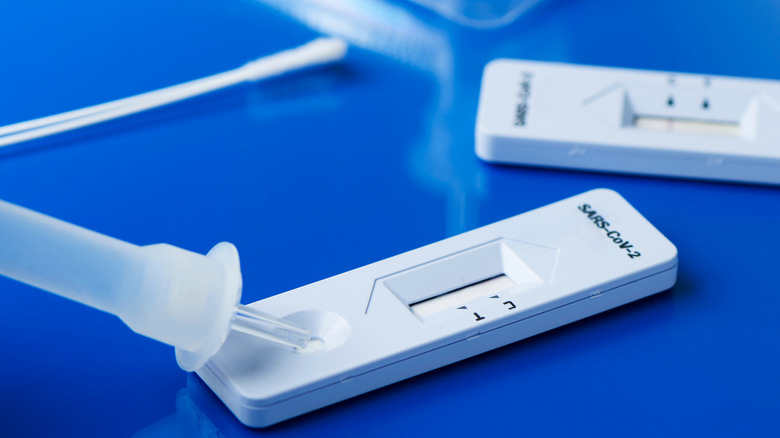New Research Offers Clues About How Doctors Can Predict COVID Severity
One of the most challenging aspects of the COVID-19 virus is that it has a wide range of symptoms. Individual cases vary from fairly mild to severe, according to the Centers for Disease Control and Prevention (CDC). On top of that, some people can have the virus and not experience the typical symptoms most people report, according to Healthline.
One way to know if you have COVID is to check the levels of antigens in your blood. Some antigens are not present in your body, but others are activated by your body's immune response to viruses like COVID (per MedicineNet). The best time to test for COVID antigens is within the first few days of experiencing any symptoms. People who have been in direct contact with others who have COVID can also be tested for antigens. Antigen tests are available over-the-counter, and you can get results in 15 to 30 minutes. New data published in the Annals of Internal Medicine shows that antigen levels might predict COVID severity.
Higher levels of antigens are associated with more severe symptoms
The study examined the antigens levels of 2,540 hospitalized patients from 10 countries, who were enrolled in a trial that lasted from August 2020 to November 2021. Researchers calculated the amount of COVID-related antigens, and also determined whether the patient was infected with the Delta variant. They found that elevated levels of antigens were associated with more severe symptoms, including poor lung function, by day five. People who had coronavirus antibodies, either from a previous infection, vaccination, or from an antiviral medication, saw lower antigen levels (per WebMD).
Research also showed that people with higher antigen levels were also in the hospital longer than those with fewer antigens. Males were also linked to higher levels of antigens. Authors of the study pointed out that higher levels of antigens suggest that the virus is replicating, even in later stages of the disease. Risk factors include being over the age of 65 or having renal impairment prior to infection.


